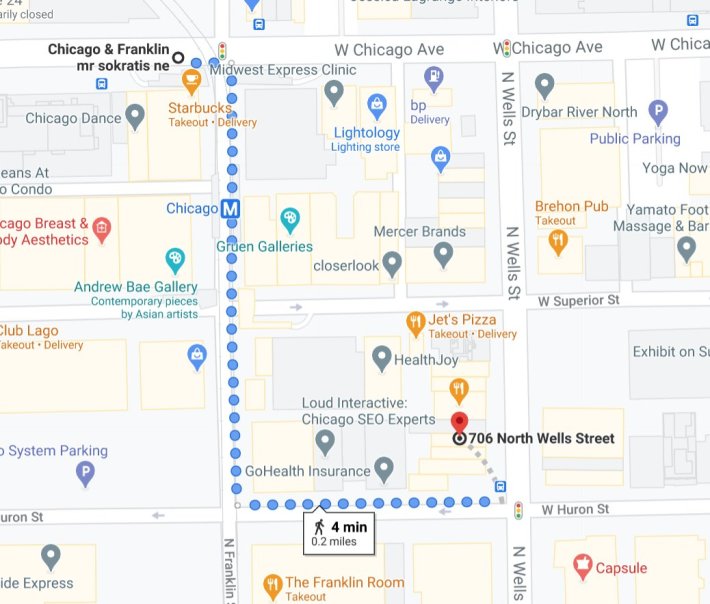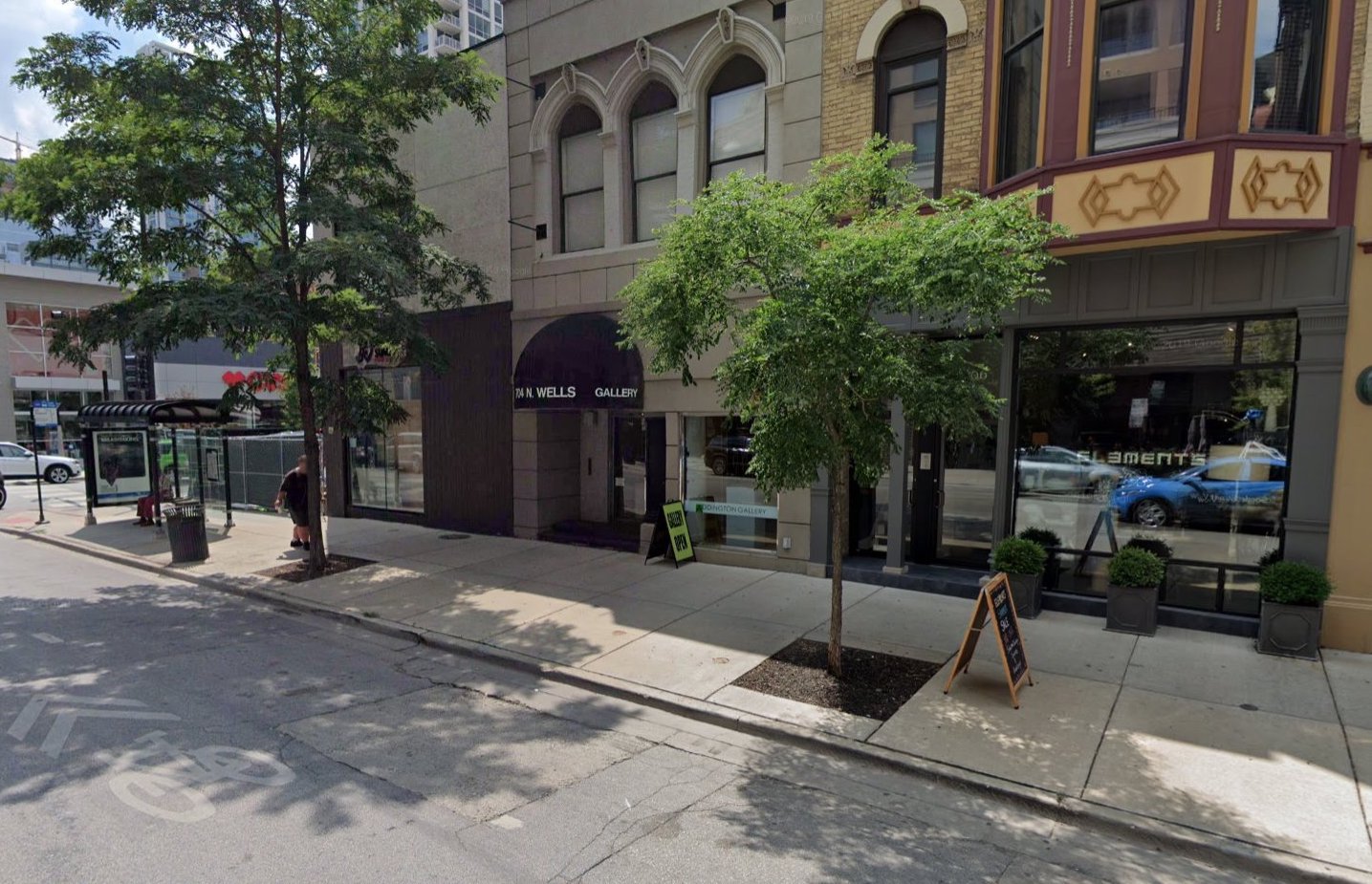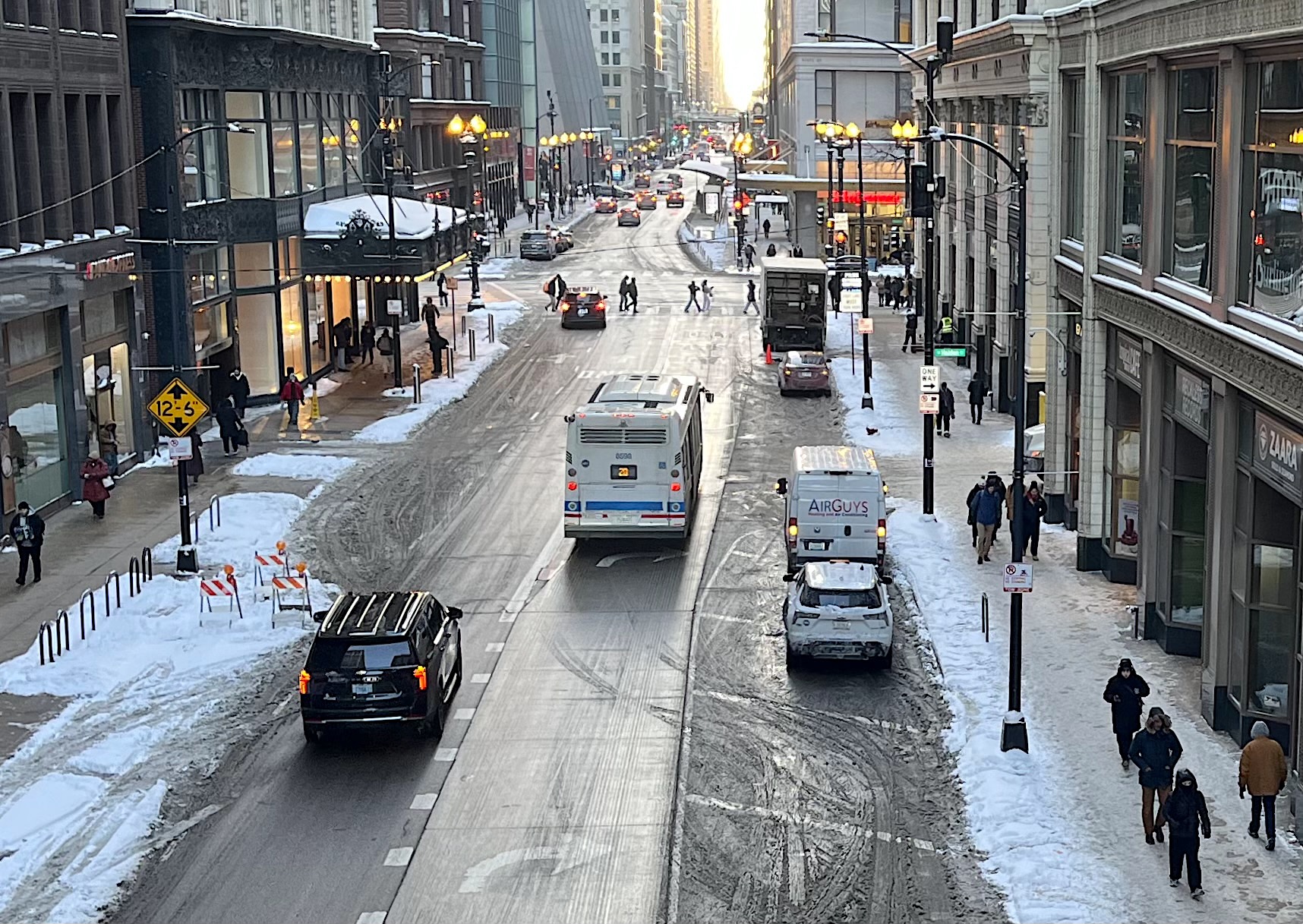When business owners face difficulties, they sometimes scapegoat livable streets initiatives for their financial woes. For example, several years ago when business was slow at the Silver Palm restaurant in River West, the owner, who was running the eatery by remote from his home in Mexico at the time, blamed the installation of a Divvy bike-share station for "gobbling up" car parking spaces. The only problem with that explanation was that the station was installed on the sidewalk, so it displaced zero parking spots.
A similar phenomenon is happening right now in River North. As reported by Block Club's Bob Chiarito, the owners of Elements gift shop, 706 N. Wells St. are blaming Chicago's Cafe Streets program for putting them out of business by making it impossible for customers to access the store. But that also appears to be a dubious claim.
The Cafe Streets initiative, officially called the Expanded Outdoor Dining program, which pedestrianized dozens of restaurant strips from Chatham to Rogers Park, appears to have been a major win for small businesses overall. During the COVID-19 respiratory pandemic, when it's important to avoid hanging out inside indoor public spaces for non-essential purposes, the initiative has made room for safer socially-distanced outdoor dining and drinking. As of early October, over 400 bars and restaurants had participated in the program, which has functioned as a lifeline to help them stay in business.
Elements co-owner Jeannine Dal Pra acknowledged to Block Club that sales at the store declined due to the coronavirus, as was the case at most other non-essential retail shops. But she blamed the pedestrianization of Wells on the block between Huron and Superior streets, which includes four restaurants, for driving her out of business for good. The Cafe Street launched in August on weekends, and was so successful for the restaurants that the next month it was expanded to seven days a week.
"I came in and called the alderman’s [Brendan Reilly’s] office and talked to one of his people," Dal Pra told Chiarito. "She told me they were going to close the street to help the restaurants for an indefinite period. I said, 'What about us? How can our customers get to us?'"
Good question: While that single block of Wells is pedestrianized, what other options do Elements' customers have for accessing the store? Well, they could park their cars on nearby cross streets, and have a slightly longer walk to the front door. Or they might have taken taxis, Uber, or Lyft during the warmer months when was easy to ride with the windows down and masks on, and therefore a reasonably safe option, and not had to worry about parking at all.
The shop, which sells jewelry, home decor, clothing, and more, also has excellent transit access. The Chicago Avenue Brown and Purple line 'L' station is a four-minute walk away, and there's a stop for the #37 Sedgwick bus right outside the door. Granted, the bus is rerouted while Wells is pedestrianized, but it still stops one block east of the store at Huron and LaSalle Street, a stop that is also served by the #156 LaSalle bus. Public health officials say that riding transit is not a high-risk activity during the pandemic due to the fact that most riders wear masks.

Wells is also a busy cycling route with bikeway markings for its entire length, although I wouldn't expect that to be a popular mode with gift shop clientele. And there's always walking, for customers who live close by. But clearly it's still fairly easy to shop at Elements while the street is pedestrianized, even if it isn't possible to get rock star parking right in front of the storefront.
Elements' lease is up at the end of the month, so the owners decided to have a going-out-of-business sale and close on December 23, Dal Pra told Block Club. But Avli River North restaurant owner Louie Alexakis said the all-week Cafe Street has helped his business stay afloat, and questioned whether the Cafe Street really drove Elements out of business. "I believe they were having difficulty way before the street closure."
On the one hand, we should have sympathy for merchants who are struggling during these unprecedented times. But when they blame car-free streets, which have clearly been beneficial for many other small businesses during the crisis, for their financial woes, it's best to take that with a grain of salt.






